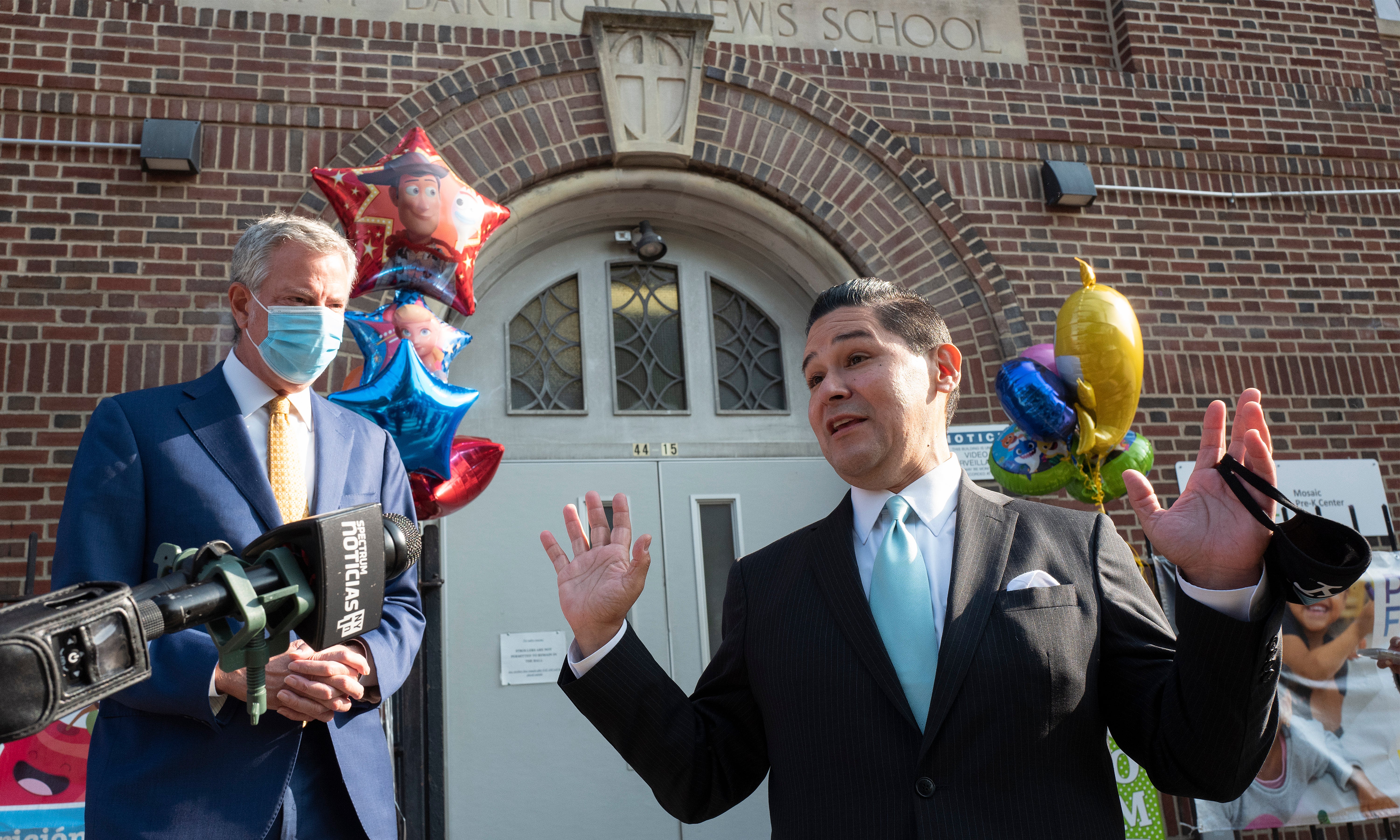Admissions changes aim to remedy segregation in NYC schools
New York City officials is changing its admission system for hundreds of middle and high schools in one of its most significant steps in years to address racial segregation

New York City is changing its admission system for hundreds of middle and high schools, officials said Friday in announcing one of the most significant steps the nation's largest school system has taken in years to address racial segregation.
Mayor Bill de Blasio said the city is suspending academic merit-based screening for its selective middle schools for at least a year, partly because the coronavirus pandemic has scrambled test, attendance and grading data that the schools have used to grant admission to top-performing elementary school kids.
It wouldn't be fair for schools to rely on two-year-old data about children so young, Schools Chancellor Richard Carranza said. Instead, a lottery would be used when schools have more applicants than available seats.
Carranza called the changes “a common-sense approach” to tackling two issues: the challenges arising from the pandemic and longstanding patterns of racial concentration that leave many schools less diverse than the student population as a whole.
“These changes will help ensure that our classrooms reflect the great diversity that is New York City, and it’s also a true representation of the values that we hold dear as a city — that equity, inclusivity and excellence for all children is at the cornerstone of what we do,” he said at a virtual news conference with de Blasio.
New York City's school system has more than 1.1 million students. About 41% are Hispanic, 26% Black, 16% Asian and 15% white. Despite various administrations' professions of commitment to diversity and changes over the years to the system for assigning students to schools, many coveted schools fill up with white, wealthier students.
“It’s time to start using every tool at our disposal to address inequality,” said de Blasio, a Democrat. “The status quo in New York City public schools cannot continue.”
The system also will eliminate geographic priorities for high school admissions starting next year, beginning with neighborhood residency priorities.
For now, high schools can continue to screen students academically for admission, though the city is inviting them to eliminate or reconsider those criteria. At the moment, however, no changes are planned for a handful of elite high schools that choose students based solely on a test or, in one case, performing arts auditions and portfolios.
Calls to change the city's school admission system have been growing in recent years. Middle school academic screens were already scrapped in a Brooklyn area where de Blasio lived before becoming mayor.
But there are also advocates for preserving at least some components of the selective admissions system. Some families and officials have argued the city should instead focus more effort on helping students from underrepresented groups prepare for the process and on expanding the ranks of top schools.
“Equity and excellence can and must be pursued simultaneously; there should be no trade-off between the two," state Sen. John Liu said in a statement. A former city comptroller and councilman, he now chairs the Senate’s committee on the city’s education system.
Liu, a Democrat, agreed that the pandemic had made the usual middle school screening process unworkable this year. He urged the city to have “full public discourse about the issues” as it weighs what to do in future.
Bookmark popover
Removed from bookmarks